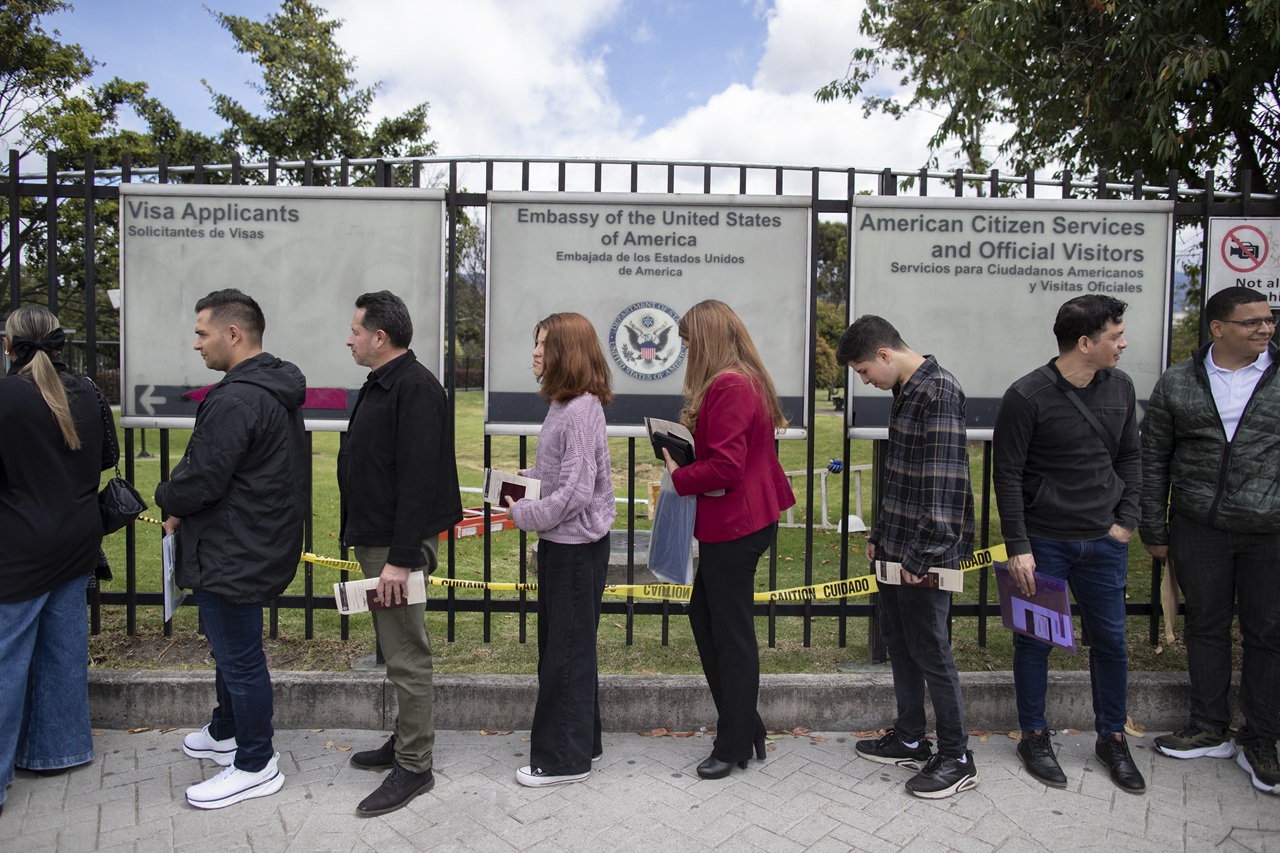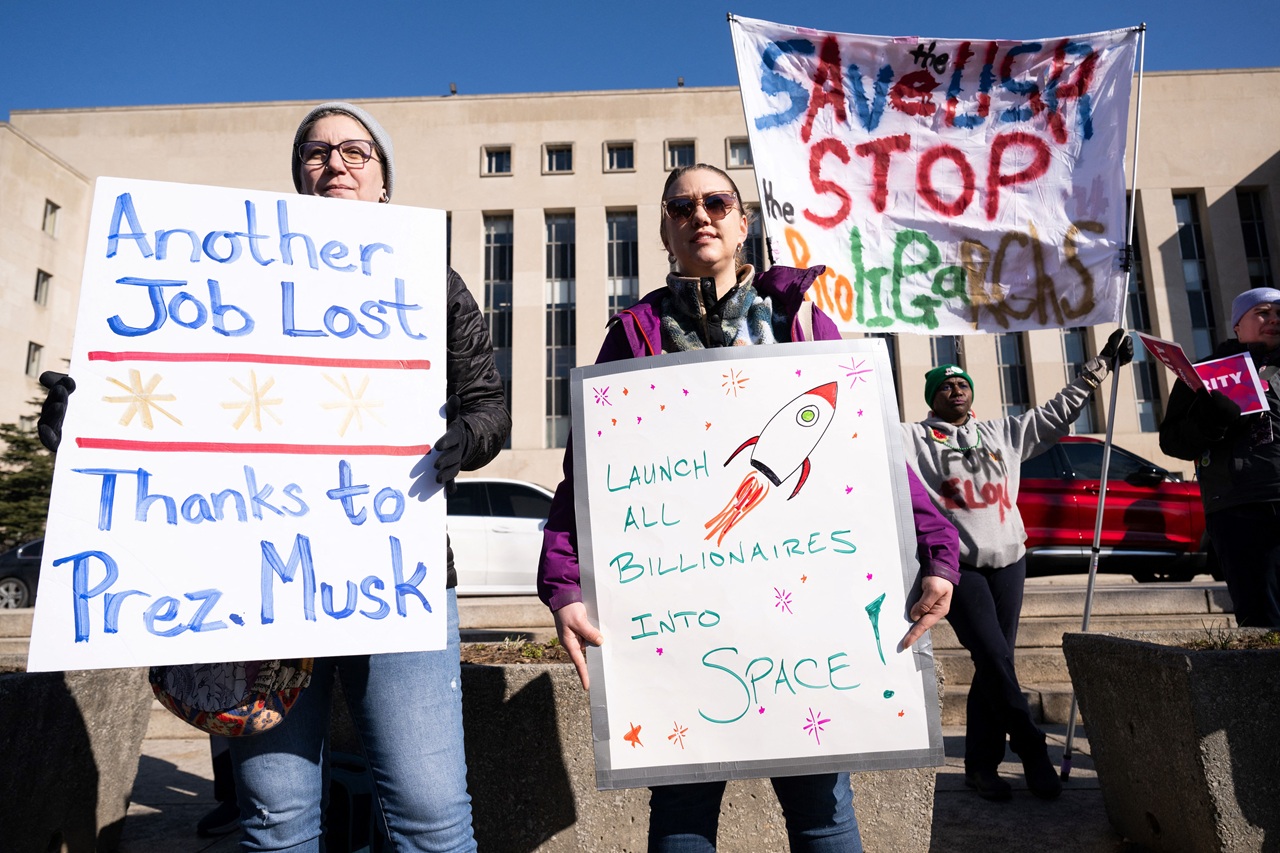
How Asian-Americans across the U.S. have fought back against anti-Asian hate
The time for change is now in the fight against anti-Asian hate in the U.S.
Asian immigrants were once called a “yellow peril” and thought of as “unclean and unfit” for citizenship in America. In 1882, the Chinese Exclusion Act was passed, the first law in the U.S that barred immigration based solely on race.
The Chinese Exclusion Act was followed by several denials of justice against Chinese and Japanese immigrants seeking access to land ownership, citizenship and other rights in state and federal courts in the early 19th century.
This demoralizing legacy of xenophobic acts continues today.
As soon as the World Health Organization (WHO) labeled the coronavirus as a global health emergency, anti-Asian racism quickly made rounds on social media platforms.
Writer and organizer @but_im_kim_tran says the spike in anti-Asian hate crimes during the pandemic is "the byproduct of a much longer history of anti-Asian policy and anti-Asian sentiment." pic.twitter.com/PwznfVr1R6
— Democracy Now! (@democracynow) March 3, 2021
Stop AAPI Hate recorded more than 3,000 incidents of anti-Asian racism from March 2019 to December 2020. Bay Area communities in California, including San Francisco and Oakland, have been hit particularly hard by the uptick in racial violence.
Several individuals and groups have decided to take matters into their own hands to raise funds, educate others on how to report crimes, and protect their fellow community members.
One of those individuals is second-generation Korean-American, Esther Lim. Lim created a booklet called “How To Report a Hate Crime,” that informs people on what to do after witnessing an incident.
The booklets, which have been published in English, Korean, Spanish, Thai, Vietnamese, Japanese and Spanish, contain 15 pages of preventative measures and useful English phrases that people can use to seek help from a bystander. The booklets also come with free emergency whistles to use.
Last year, I wrote about Esther Lim who was so worried about older Asians in LA getting attacked during the pandemic, she created booklets for them in Chinese, Japanese & Korean.
— Josie Huang (@josie_huang) February 10, 2021
After recent violence in the Bay area, she's added Thai & Vietnamese.https://t.co/GLePkCmA8g
Lim told NextShark that the effort was community-driven and all the translations were done by volunteers from different parts of the country. So far, she has given away about 5,000 booklets to Los Angeles and Orange County.
Esther Lim (@essyli1) designed and gave away 5000 of her “How to Report a Hate Crime” booklets to help #StopAsianHate. She has plans to print and distribute more, but needs your help.
— Vicky Nguyen (@VickyNguyenNews) March 1, 2021
Full story: https://t.co/UlSTrRiP6f#StopAAPIHate pic.twitter.com/d9iuEV0qZq
Lim went even further by creating an ongoing GoFundme campaign to print more booklets and distribute them to Oakland, San Francisco and New York.
“There are essential pages in the booklet like writing down detailed descriptions of incidents and pages in the back of useful English phrases to flash to a bystander to seek help during an attack if they are not able to speak English,” their official website reads.
Lim’s project has received much adulation on social media. Jerry Won, founder and CEO of Just Like Media, posted about her initiative on Instagram and called Lim a “hero” before thanking her for her efforts.
Japanese-American visual artist Drue Kataoka took a different approach and organized a fundraiser to support the Asian American Federation (AAF), a nonprofit that aims to end discrimination and violence towards the Asian community.
RELATED CONTENT
By using GoFundMe, Katoaka set an initial goal of crowdfunding $10,000 for the organization. Later on, the goal was increased to $20,000 and more than $16,000 has already been reached.
The recent surge in anti-Asian violence is alarming. Racism is killing us & targeting the elderly.
— Drue Kataoka (@DrueKataoka) February 20, 2021
Support the vital work of @AAFederation a non-profit directly TACKLING THE HATE CRIME issue head on:https://t.co/0HTiTOXvNr@CurtisSChin @jaesonma @DavidChiu @yuhline @joeyng
On her GoFundMe page, Kataoka cited various cases of hate crimes that have sparked national outrage and a demand to end anti-Asian violence, including the heart-wrenching murder of the 84-year-old Thai-American, Vicha Ratanapakdee.
“On the same day a Filipino American slashed across the face on the subway. Last week, elementary teacher Matthew Leung was beaten until he got a concussion and lost a finger. Racism is maiming and killing us. Asian Americans are Americans too,” Katoaka wrote.
According to the artist, AAF is combating anti-Asian hate through amplifying media coverage of these incidents, providing accompaniment to elderly people as they run their daily errands.
It’s also pressuring local governments to update hate crime policies, and distributing materials in seven Asian languages to those low-income communities that may be afraid of reporting to the police.
In light of continuing attacks against Asian New Yorkers, download our booklets in 5 Asian languages with strategies to stay safe. Share with your families and friends. Download FREE here➡️ https://t.co/bkG7wY4fYY pic.twitter.com/YMQ7Qc4X5h
— Asian American Federation (@AAFederation) March 2, 2021
The Asian American community is especially troubled by the senseless violence being inflicted upon their elders. To make Asian elders in Oakland’s Chinatown feel safer, the nonprofit organization, East Bay Toishan Association, has established a foot patrol group.
In Chinatown alone, at least 20 attacks were recorded before February, including the assault of a 91-year-old man who was shoved to the ground.
This group is supported by the Oakland Chinatown Chamber of Commerce, the Mental Health Association for Chinese Communities, the Asian Pacific Environmental Network and the Asian and Pacific Islander Caucus. These unarmed volunteers will serve as watchdogs to deter violence as well as report incidents to the police.
As attacks on Asian Americans continue to spike across the Bay Area, a new foot patrol has formed and intends to walk the streets of Oakland's Chinatown to help protect the community's residents and businesses. https://t.co/PzTu5vyvJ3 pic.twitter.com/M6sMnx15HI
— NBC Bay Area (@nbcbayarea) March 2, 2021
Officer Mae Phu of the Oakland Police Asian Community Liaison told NBC Bay Area that he is helping to collect evidence more efficiently by breaking down language barriers. “[I am] a person that hopefully they can trust and be able to speak with,” Phu said.
Across the country, Asian-Americans are so disturbed and devastated by the violence they have recently witnessed online or in person, that the myths and stereotypes that once held them back from speaking up, are slowly diminishing. The time for change is now.











LEAVE A COMMENT: